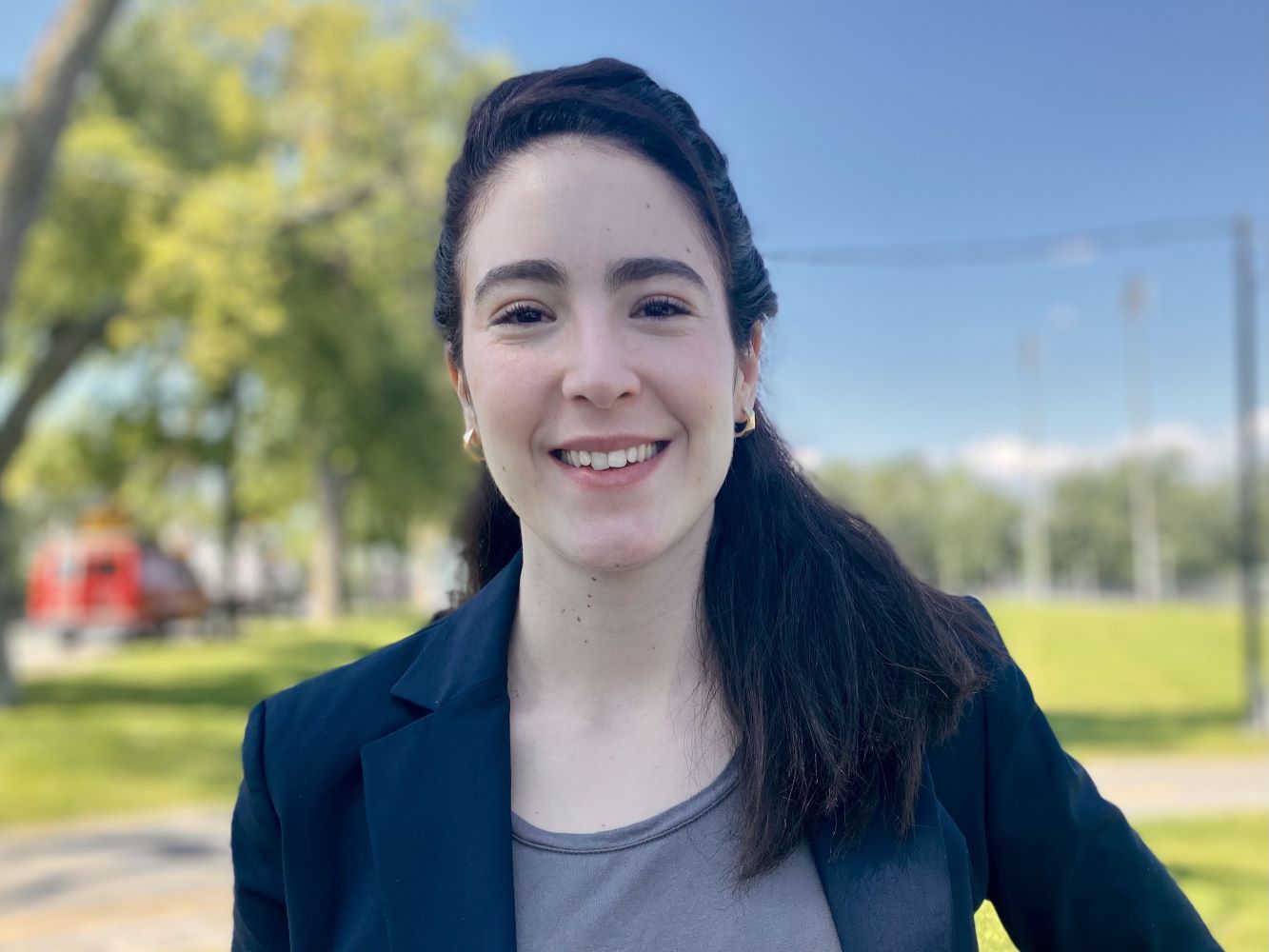
For Mariam Guizani, the intersection of software engineering and human-computer interaction is precisely where she loves to be. It was while pursuing her master's degree at Oregon State University as a Fulbright Fellow that a course called Inclusive Design, which featured the different cognitive styles of problem solving, inspired her current research and propelled her successful career. "It was very interesting and fascinating to me," says Guizani. "I could really resonate with it."
An Assistant Professor in the Department of Electrical and Computer Engineering, Guizani is experiencing a full circle moment and notably sparking enthusiasm in her students toward the same subject matter as the recipient of the 2024 Frank Knox Teaching Award from the Alma Mater Society. The award celebrates teaching excellence across the Queen's community and honours professors who sincerely commit to the education of students. "I always wanted to incorporate what I learned in research into teaching. The class in Inclusive Design was about software, but it was also about how people problem-solve differently and learn in different ways. I see that in myself when I learn, and how I learn might differ from others I collaborate with. I tried to incorporate that," says Guizani.
Her main research focus is on Open Source software and sociotechnical ecosystems. She explains how Open Source encompasses platforms like GitHub that host software projects. These projects, with their technical reliances and strong social dependencies, are collaborative endeavors spanning individual companies and geographical areas. They aim to develop cutting-edge software that permeates our daily lives, from infrastructure to nonprofits to healthcare and beyond. "My work delves into understanding this sociotechnical ecosystem, the technical and social aspects, how they interact, and contributors' experiences in Open Source. The overarching goal is to foster a sustainable Open-Source ecosystem," says Guizani.
She details how sustainability entails critical objectives like exploring the various actors and companies involved, attracting new contributors, and lowering the barrier of entry for these newcomers, which are tasks often fraught with challenges. She also examines ways to retain contributors and studies the interaction between paid and volunteer participants. "Ultimately, Open Source has a profound impact on the economy, both at a societal and individual level," says Guizani.
Another critical aspect of her research in the field is building actionable solutions to improve diversity and inclusion in Open Source. Although there are many facets, just one of the many areas she's focusing on is gender equality. "The percentage of women participating is very low. It's between 5% to 11%. It's even lower than women in STEM. So when you see this, you start questioning what is in the Open Source environment that is making it so that women are not contributing?" she says.
As for the future of Open Source, Guizani sees it continuing to progress and becoming even more mainstream. She emphasizes that there's always a security aspect that must be adhered to since it will be relied upon in many industries for years to come. "We need to ensure that Open Source is healthy, that the community is still active, and that it's secure because it's impacting everyone. I don't think Open Source will go anywhere; it's just getting bigger and bigger," says Guizani.
Aside from her research, Guizani is enjoying her new chapter as an Assistant Professor. From her roots and undergraduate studies in Tunisia to her graduate studies in the U.S. and the launch of her career while in her new home in Canada, Guizani genuinely appreciates her time in Kingston and at Queen’s. She explains that interacting with her students has been very rewarding and that their creativity and curiosity are contagious. She also enjoys seeing the impressive progress they made throughout the semester and the marked results they took away from her course with their open-ended projects.
When it comes to the advice she would impart to students from her own experiences in engineering, she encourages them to embrace challenges. "It's about taking opportunities as they come and not being afraid of the unknown. That can be rewarding because you will progress and always achieve something. You won't be limiting yourself," says Guizani. "Always have a growth mindset, be open to feedback, and give your work to people to review. It's not shying away from that, which is key. It’s a great way to advance in your studies and your career."